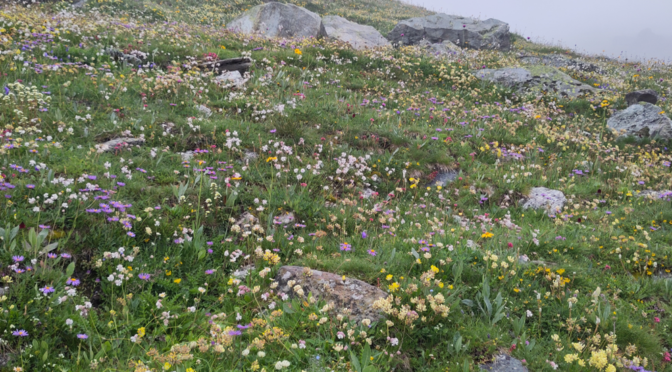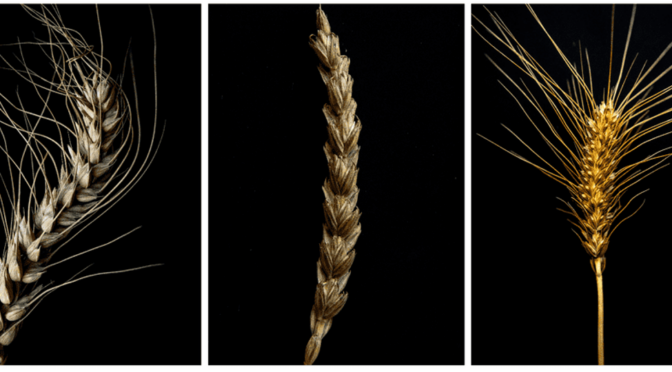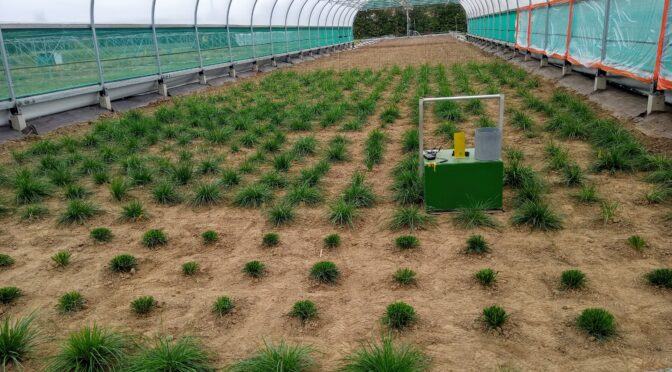Bridging the divide: Why the science-policy interface matters for global food systems
by Ismahane Elouafi
Continue reading Interesting publication





Bridging the divide: Why the science-policy interface matters for global food systems
by Ismahane Elouafi
Continue reading Interesting publicationA new report titled “On Science for Policy and Diplomacy Education in Switzerland and Beyond: A Brief Overview” has just been released, offering timely insights into the growing field at the intersection of science, policy, and diplomacy. Published by the Swiss Young Network for Science Policy and Diplomacy (SYNESPOD) of the Swiss Young Academy, in collaboration with the Geneva Science-Policy Interface (GSPI) and the Franxini Project of Reatch, the report maps educational opportunities for early-career researchers and professionals in Switzerland, Europe, and globally.
Continue reading Bridging Science and Policy – Two systematized overviews on training opportunities and science-policy interaction formatsThe 5-day summer school From Science to Action (2 ECTS) on Science and Policy aims to encourage early-career scientists to drive sustainable change.
Continue reading Science and Policy Summer School – Beyond the LabResponse Doctoral Program
With the Swiss energy transition underway, homeowners might consider investing in a photovoltaics (PV) system. However, the optimal PV system design depends on the homeowner’s preferences.
Continue reading What to consider when buying a photovoltaics system for your homeResponse Doctoral Program
We are thrilled to congratulate Katrin Sievert on being selected as one of the top 30 young scientists addressing climate change and earning the prestigious Inflection PhD Award.
Continue reading Celebrating Innovation: Recognizing One of the Top 30 Young Scientists Tackling Climate SolutionsResponse Doctoral Program
Plant breeding has been remarkably successful in developing high-yielding crop cultivars that have helped to sustain global food production over the last century. For instance, in the United States, the yield of the hybrid corn was increased 3 times, from 4 tons per hectare in the 1960s to 12 tons per hectare in 2017. By selecting and crossing plants with desirable traits, breeders have created crops that are more productive and adapted to intensive agriculture. However, this success has come with a trade-off: breeding has relied on genetic variation within a very limited primary gene pool, which has been shrinking due to genetic bottlenecks caused by domestication and intensive selection. As a result, today’s crops have lost much of their natural genetic diversity, making further improvement increasingly difficult.
Continue reading Epigenetics and Plant Breeding: Can Epigenetic Variation be used for Crop Improvement?Response Doctoral Program
Most insects that interact with plants have preferences for certain chemical components in the material they consume. In the case of insect herbivores and pollinators, both groups often need specific nutrients, or the avoidance of compounds that are toxic for them. As a consequence, they have evolved preferences or aversions to specific plant compounds, which guide their foraging for food sources.
Continue reading How Alpine Plants use Chemicals for Communication and Why this can be relevant for ConservationOn April 3, 2025, Neshan Gunasekera (Chief Executive Officer and Councilor of the World Future Council) will share his experiences on how you can prepare for a career at the interface between science and policy.
Continue reading Science and Policy Talk: Bridging Science and Policy to achieve Earth TrusteeshipResponse Doctoral Program
Background
The unprecedented pace of technological progress is transforming our society, but is also driving an ever-growing demand for electrical energy. Meanwhile, The UN Sustainable Development Goal 7 pushes toward a future where everyone, everywhere, has access to clean, affordable, and reliable energy. This calls for cleaner production and conscious use of sustainable energy. Addressing this challenge of a sustainable energy transition is vital for the future of our society. A key factor in this regard is the efficiency of electrical networks. An efficient network, with minimal losses, enables innovations such as smart grids and the integration of renewable energy sources.
Continue reading Next-Generation Semiconductor Materials for Sustainable Energy TransitionResponse Doctoral Program
As the need for climate change mitigation intensifies, a crucial challenge emerges: how do we tackle the menace of carbon dioxide emissions? One promising solution is Carbon Capture and Storage (CCS), a technology by which carbon dioxide emissions are captured and stored deep underground in rock formations or depleted oil wells. While CCS holds significant potential for curbing industrial contributions to climate change, it demands suitable underground storage space for the captured carbon dioxide, which is accompanied by two major hurdles. First, identifying these locations is challenging because storing carbon dioxide requires special geological conditions underground. Second, this may give rise to “Not-In-My-Backyard” protests in communities that host carbon dioxide storage projects due to public misperceptions of carbon dioxide as toxic for individuals.
Continue reading Cross-border Cooperation on Carbon Capture and Storage: Why Public Opinion Matters?